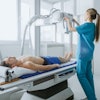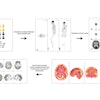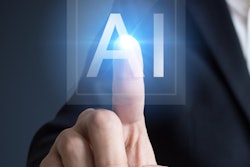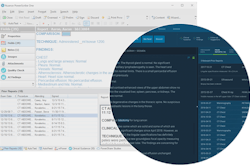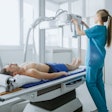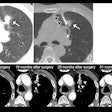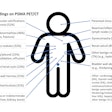Dear AuntMinnie Member,
PET has been emerging as an effective tool for diagnosing early signs of Alzheimer's disease. But European researchers believe it could be even better with a new radiotracer they are using.
Called RO-948, the tracer tends to accumulate in areas of the brain with concentrations of tau, a protein that builds up in individuals with Alzheimer's disease. The researchers believe that RO-948 has potential to be more effective than PET with other radiotracers or MRI and cerebrospinal fluid biomarkers.
They tested RO-948 in a group of over 600 patients -- find out how well it performed in an article in our Molecular Imaging Community that was the most-read story of the past week on AuntMinnie.com.
In a related study, researchers from Yale University used PET with a carbon-11-labeled radiotracer to visualize early-stage Alzheimer's disease by measuring the presence of a particular protein. And in the realm of molecular prostate imaging, Israeli researchers used PET/CT with an F-18 prostate-specific membrane antigen agent for prostate cancer.
Read these stories and more in our Molecular Imaging Community.
AI for COVID-19
A number of imaging tools are emerging as the most effective in detecting and managing patients with COVID-19. One of the most intriguing is artificial intelligence (AI).
Researchers from the Netherlands tested an algorithm they developed for use in detecting COVID-19 on chest radiographs, finding that it performed comparably to x-ray interpretations by radiologists. Best of all, the algorithm is being offered for free on the developer's website.
In other AI news this past week, graphics processing unit developer Nvidia unveiled new AI models to perform lung segmentation and detection of COVID-19 on CT exams, U.S. researchers discussed a method for improving the performance of computer-aided detection (CAD) by hiding CAD markings until after radiologists completed their initial interpretation, and researchers from the U.K. and Canada issued a warning about the impact that patient movement can have on the accuracy of AI interpretations.
You'll find other stories about AI in our Artificial Intelligence Community.
Webinar on radiology continuity
Be sure to join us at 1 p.m. Eastern Daylight Time on Wednesday, May 20, for a webinar on radiology continuity in the age of COVID-19. We've assembled a panel of key opinion leaders in radiology to discuss how their facilities and practices adapted to the COVID-19 outbreak and how they are getting ready for the weeks and months to come. Reserve your space now for this free webinar.
Finally, we're looking for participants in an upcoming webinar on the barriers that COVID-19 has raised to new equipment purchasing. If you are a radiologist or radiology administrator with purchasing authority at your facility and are interested in participating, please email me at the link below. An honorarium will be provided.
